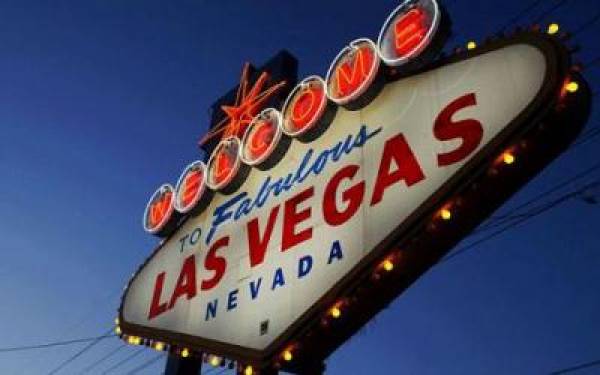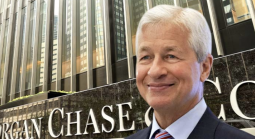If Vegas Project Fails It Will Be Like Pearl Harbor

LAS VEGAS (Reuters) - It was conceived as the centerpiece of a thriving Las Vegas -- one of the world's most expensive building projects that would bring back glamour to the Strip and cap an unprecedented three-year economic boom.
Instead the $9 billion development named CityCenter -- touted as the city's most ambitious endeavor -- has come to symbolize a global retail and leisure slump and the city's struggles to come to grips with crushing unemployment and dwindling casino revenue.
Partners MGM Mirage -- struggling to bankroll the project's ballooning cost -- and Dubai World had pondered placing the development under bankruptcy, thrusting its future into question, sources say.
Things appear to be buzzing along at the 67-acre glass and steel mini-metropolis of envisioned condominiums, hotels, shops and casinos in the middle of the Strip, dwarfing MGM Mirage's own sprawling Bellagio and Harrah's Caesar's Palace.
The complex is scheduled to open in phases starting late this year, although analysts say it's unclear if that target will be met.
Motorists and pedestrians slow to gawk at buildings glittering in the desert sun, while workers in white hard-hats and orange vests throng the site.
But trouble is brewing beneath the surface. In March, Dubai World, the development arm of the United Arab Emirates, sued MGM Mirage, claiming mismanagement and wanting out of further financial commitments. The U.S. company hired bankruptcy counsel, setting off alarms about solvency. And the company was forced to inject an emergency $200 million to keep construction going.
"The events of the last six months have been our Pearl Harbor, economically," said Bill Thompson, gaming expert and professor of public administration at the University of Nevada, Las Vegas. "CityCenter might be too big to fail. If it opens, it's a dramatic gesture that says we're winning, we're not defeated, we're on the way back."
"If it fails, it would be like a second Pearl Harbor."
It now needs $800 million more to access a $1.8 billion credit facility to let it complete the project, but funding prospects look bleak in a global recession.
Hope hovers on the horizon. MGM Mirage, which a source said had hired Morgan Stanley to advise on selling its other casinos, is in discussions with Colony Capital LLC about investing in CityCenter, sources say. Australia's Crown Ltd has denied speculation it too was considering sinking money into the project.
WOE BEGONE
Investors fled as the recession killed a three-year boom. MGM Mirage's shares have plunged 95 percent in the past year.
CityCenter's financial woes are the latest in a string of setbacks for a project that promised to change how people think of Vegas and was called the nation's most expensive, privately financed construction when it was announced in November 2004.
MGM Mirage enlisted a coterie of renowned architects including Cesar Pelli and Norman Foster to design what ex-CEO Terry Lanni called a "paradigm-shifting project."
Cost overruns, delays and construction snags since prompted MGM Mirage in January to halve the 49-story Harmon tower hotel.
Soaring building-material costs nearly doubled CityCenter's initial price of $5 billion, at a time tourism is plunging amid the slowest growth in gaming revenues in 25 years.
"The initial price was based on analysts' projections," said Alan Feldman, an official with MGM Mirage. "The spiraling cost of concrete, steel and labor pushed us to $9 billion."
Late last year, the company spent months repairing buildings after government inspectors demanded proof that all six of its towers were structurally sound. Company spokesman Gordon Absher said the company fixed the problems.
In June, inspectors from the Occupation and Safety and Health Administration visited the project after workers walked off to protest unsafe conditions. Six workers have died.
Absher declined comment on the worker deaths.
For Las Vegas itself, more than 8,500 construction jobs and 10,000 permanent jobs are at stake, experts say.
"This project has far-reaching effects on the city as a whole," said Steve Redlinger, spokesman for the Southern Nevada Building and Construction Trades Council. "Nobody ever thought construction would ground to a halt," he said. "There is no next project. A lot of workers are scared. I'm scared."
Managed right, a Chapter 11 filing or a pre-packaged bankruptcy could allow MGM Mirage to restructure debt and finish CityCenter, said Nancy Rappaport, bankruptcy expert and a law professor at the University of Nevada, Las Vegas.
"There's a ripple effect whenever a company files for bankruptcy. Enron's filing devastated a lot of businesses in Houston," she said.
Government won't intervene, said Rory Reid, who chairs the 7-member Clark County Commission, which regulates the Strip.
"We have a ($2.3 billion) state budget deficit to deal with. I don't think we have legislative authority to make investments in private interests," Reid said.
Nearly 60 percent of that budget comes from sales taxes.
"CityCenter is the central focus of what's happening in Las Vegas," said Randy Lavigne, executive director of the Nevada and Las Vegas chapter of the American Institute of Architects.
"It's the largest project in the world right now."













